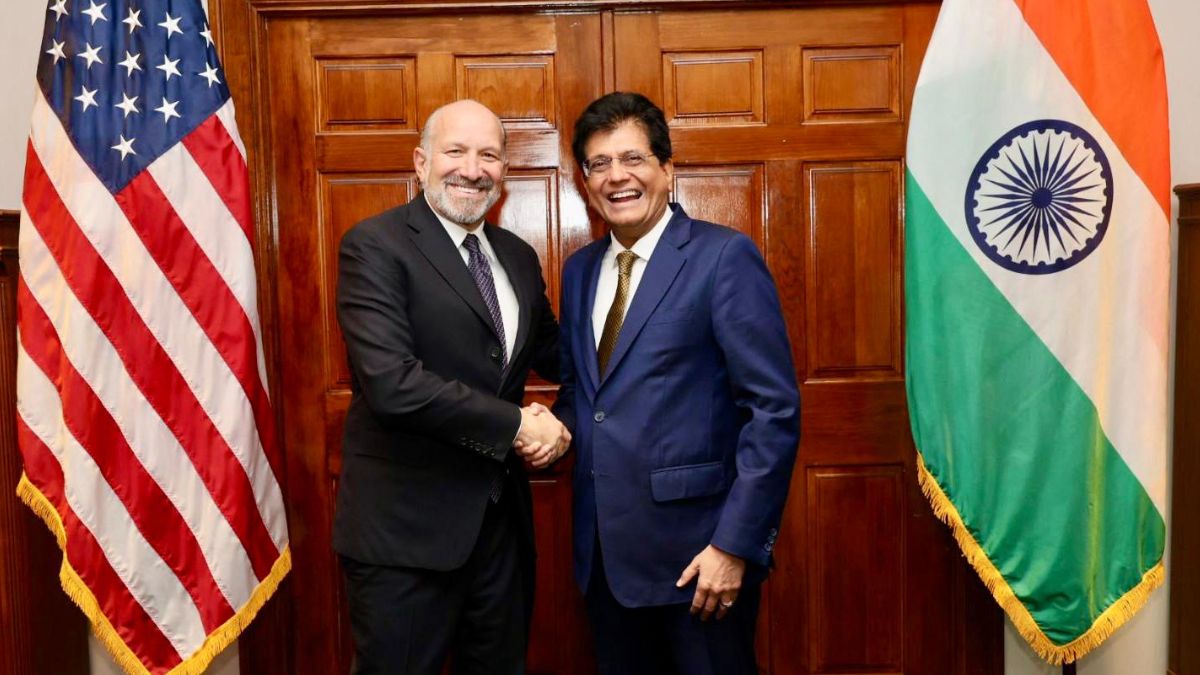Will India get a full reciprocal tariff exemption from US? Interim trade deal negotiations in final stages
 Union Minister of Commerce and Industry Piyush Goyal with US Commerce Secretary Howard Lutnick | X/ @PiyushGoyal
Union Minister of Commerce and Industry Piyush Goyal with US Commerce Secretary Howard Lutnick | X/ @PiyushGoyal
With the Union Minister of Commerce and Industry Piyush Goyal in Washington, D.C., looking to iron out any wrinkles in the proposed bilateral trade agreement (BTA) being negotiated between India and the United States, the country looks at a full exemption from the 26 per cent reciprocal tariff on Indian goods.
On Friday, Goyal met the US Commerce Secretary Howard Lutnick to discuss the BTA. This is the second time both are in discussions, after the Minister met Lutnick on May 20 to speed up the first phase of the deal.
The Indian Commerce Minister took to X (formerly Twitter) to state that he had a “constructive meeting” with the US Commerce Secretary and reassured his commitment to “enhancing opportunities for our businesses and people.”
The interim trade pact is expected to be finalised by July 8, and both countries have their hopes hinged on positive outcomes for their respective sides. This comes at the heels of the four-day-long negotiations between the US and Indian delegations that recently concluded in Washington on Thursday.
India looks at a complete exemption from reciprocal tariffs slapped on goods entering the US from the country that US President Donald Trump slapped on April 2. Even though he later suspended it for 90 days till July 9, if no agreement is reached, the tariffs come into effect.
Apart from tariff exemptions, India also hopes for concessions and cuts in US duty levied on labour-intensive sectors (like textile, garments, manufacturing, chemicals, and jewellery) in the first phase of the proposed BTA.
The BTA is expected to lift the bilateral trade between the two large democracies by at least two-fold to $500 billion by 2030.
In return, the US hopes for tariff cuts on electric vehicles, wines and liquor, certain petrochemicals, and agriculture products. Washington has been pushing to import genetically modified crops for quite some time now, but India may not allow it due to the strict regulatory checks in place.
The United States has been India’s biggest trading partner for the past four fiscal years. The FY2025 bilateral trade amounted to $131.84 billion, as per government data.
Overall, the US imports 18 per cent of India’s exported goods. The Donald Trump administration would also try to cut the trade deficit between the two nations, given that India had a surplus of $41.18 billion with the US last fiscal. This meant that the US imported more Indian goods than exported theirs to India.
The US would also be keen to get a deal in place soon, especially after both the UK and EU have rushed to secure bilateral trade with India. This week, the UK government stated that it would be quicker, cheaper, and easier for British companies to trade with India following the bilateral Free Trade Agreement (FTA) signed earlier in May.
Business